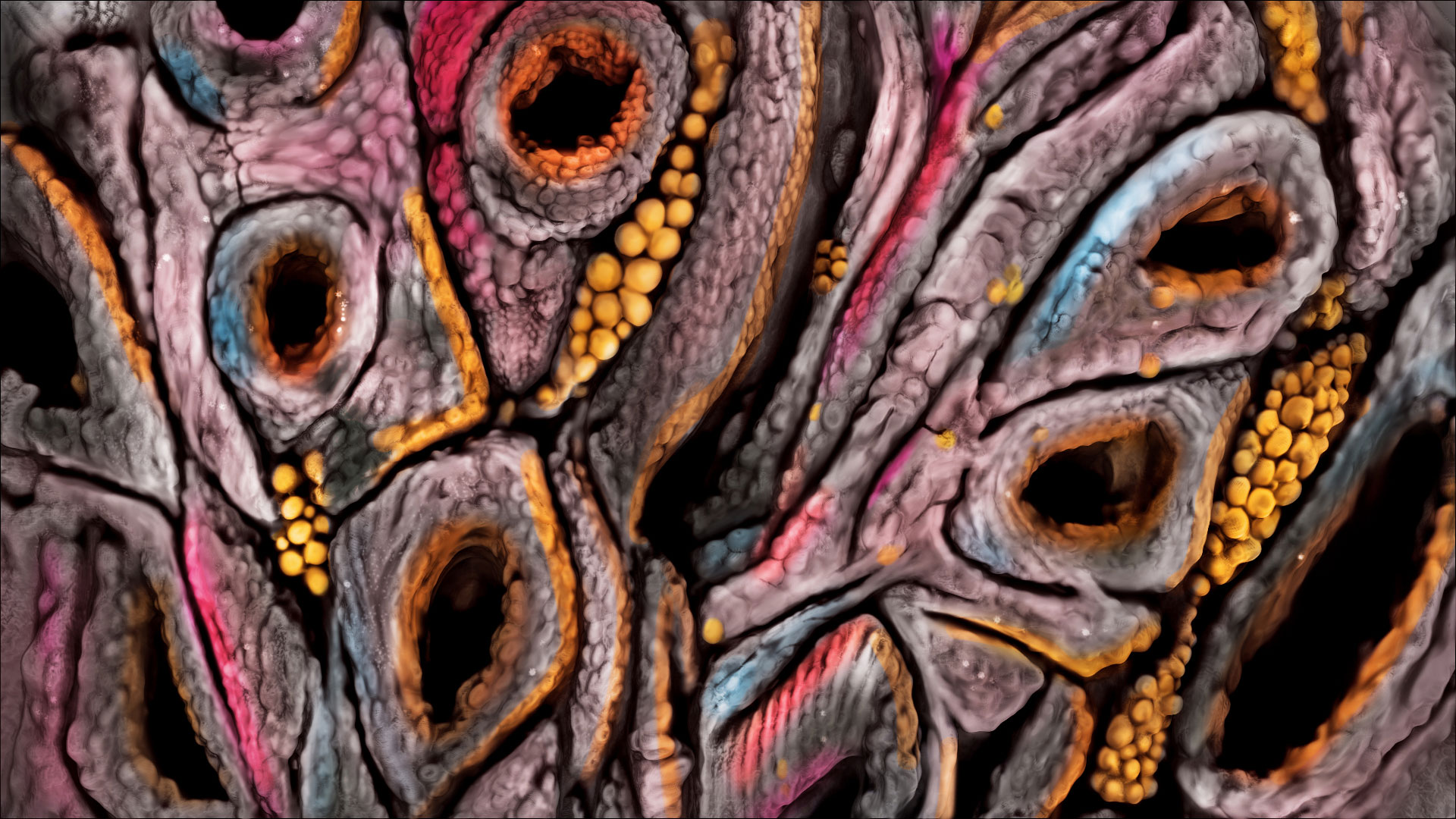
Coeliac disease
About
Coeliac disease is an autoimmune condition which can cause chronic inflammation of the small intestine associated with malabsorption of nutrients.1 Pancreatic exocrine insufficiency (PEI) is reported in a subset of patients with coeliac disease, usually without the direct involvement of the pancreas itself.2
Epidemiology
Causes
As a result of inflammation, decreased release of stimulatory mediators from the small intestine may reduce the secretion of intestinal enzymes and bicarbonate, and also cause asynchrony between gastric emptying following a meal and release of bile and pancreatic enzymes into the small intestine (postcibal asynchrony). This can lead to maldigestion, despite normal secretory capacity of the pancreas.2,3 However, in a subset of patients, pancreatic disease may also be involved.2
Pathophysiology
In people with coeliac disease, glutens (a class of dietary protein present in wheat, rye and barley) activate an abnormal immune response in the intestinal mucosa.1 This is associated with blunting of intestinal villi, crypt hyperplasia, and lymphocytic infiltration of crypts.3 This mucosal damage is linked to decreased pancreatic exocrine function.3 Coeliac disease is associated with both gastrointestinal and non-gastrointestinal manifestations, including pancreatic disease itself.2,3 Complications of untreated coeliac disease can be serious, including osteoporosis or malignancy.2
Coeliac disease is common, affecting approximately 1% of the population.2,3 People with autoimmune conditions or a first-degree family history of coeliac disease are at increased risk.2
FACT
In children with coeliac disease, low faecal chymotrypsin could be used to select patients who may benefit from initial pancreatic enzyme replacement therapy (PERT).
Keller and Layer, 20052
Signs and Symptoms
In general, PEI causes malabsorption and maldigestion, resulting in symptoms of:3,4
Symptoms
- WEIGHT LOSS
- ABDOMINAL PAIN
- FATIGUE
- DIARRHOEA
- STEATORRHOEA
- FLATULENCE
Steatorrhoea, characterized by foul-smelling, greasy stools, is a typical clinical manifestation of severe PEI.3,5 Malabsorption associated with PEI, characterized by steatorrhoea, weight loss and malnutrition, is associated with deficiencies of fat soluble vitamins: A, D, E and K, minerals, and essential fatty and amino acids.4,5
Complications
Complications from maldigestion and malabsorption may have a progressive and detrimental effect on a patient’s wellbeing and impact the outcome of the underlying disease, and increase morbidity and mortality.4,5 For further information on the complications of PEI, CLICK HERE.
Diagnosis of PEI
To diagnose coeliac disease, serological testing is required, with detection of IgA and IgA tissue transglutaminase as the first choice.1
There are several methods available for diagnosing PEI, with the indirect methods being the most frequently used in the clinical setting.
For more information on diagnosing PEI, CLICK HERE.
Treatment
The core treatment of coeliac disease is a lifelong gluten-free diet.1 Generally, PEI is limited to patients with mucosal damage and can be reversed after initiation of a gluten-free diet. There is evidence that concomitant treatment with PERT may increase weight gain compared with a gluten-free diet alone.2
To learn more about the treatment of PEI with PERT in general, dosing of PERT, and other aspects of PEI management, CLICK HERE.
References
- Internal Clinical Guidelines Team (UK). Coeliac Disease: Recognition, Assessment and Management. 2015. London: National Institute for Health and Care Excellence (UK). Available from: https://www.ncbi.nlm.nih.gov/pubmedhealth/PMH0079298/pdf/PubMedHealth_PMH0079298.pdf. [Cited 20 February 2018].
- Keller J, Layer P. Human pancreatic exocrine response to nutrients in health and disease. Gut. 2005;54(Suppl VI):vi1–vi28.
- Smith RC, Smith SF, Wilson J, Pearce C, Wray N, Vo R, et al. Australasian guidelines for the management of pancreatic exocrine insufficiency. Australasian Pancreatic Club. October 2015. pp 1–122.
- Sikkens EC, Cahen DL, van Eijck C, Kuipers EJ, Bruno MJ. The daily practice of pancreatic enzyme replacement therapy after pancreatic surgery: a Northern European survey. enzyme replacement after surgery. J Gastrointest Surg. 2012;16:1487–1492.
- Domínguez-Muñoz JE. Pancreatic exocrine insufficiency: diagnosis and treatment. J Gastroenterol Hepatol. 2011;26(Suppl 2):12–16.


